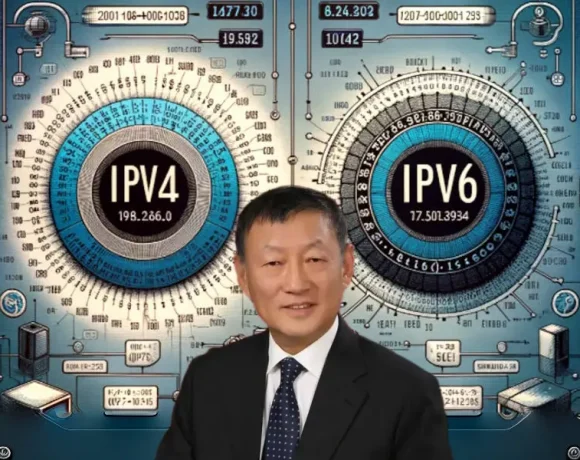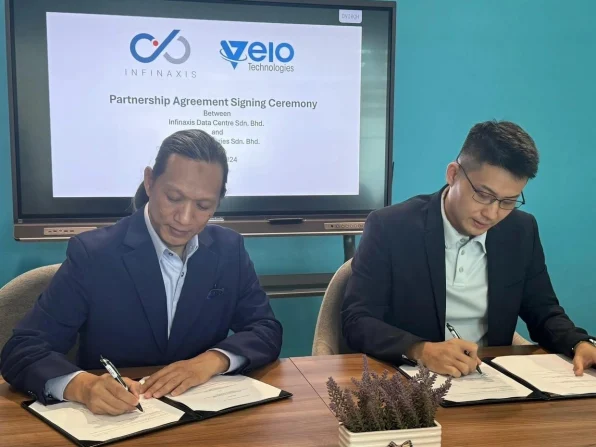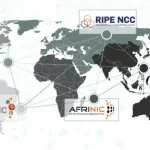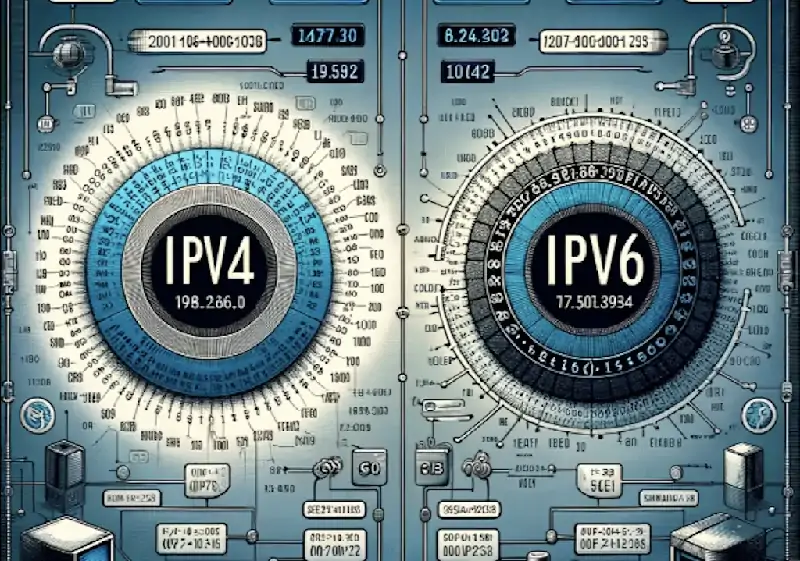- Luke Teoh emphasises the need for young people to engage in internet governance, helping shape future policies on cybersecurity and privacy.
- AI integration into education, particularly language learning, and the focus on sustainable technology development, are central to Teoh’s work.
The involvement of young professionals is critical to shaping the future of internet governance and technology. Luke Teoh, a Research Assistant at Universiti Sains Malaysia and a NetMission Ambassador, is a key advocate for youth participation in these global discussions. His work revolves around internet governance, the integration of AI in education, and the importance of sustainability in technology development. Speaking as a journalist, I had the pleasure of sitting down with Luke to delve into these topics, discussing the current trends and challenges facing the digital world.
The rise of youth in internet governance
Teoh’s journey into internet governance began early in his academic career, and he now finds himself deeply involved in the Asia Pacific Regional Internet Governance Forum (APrIGF) and its youth division, the Youth Internet Governance Forum (yIGF). He shares a story from one of his early meetings, where the sheer enthusiasm of the young attendees struck him. “Everyone came prepared to offer solutions, not just criticisms,” he recalls. “It made me realise that youth involvement is not just important—it’s essential.”
Teoh is a strong advocate for multi-stakeholder participation in digital governance. In his view, “Balancing cybersecurity and user privacy is one of the most pressing issues today.” His approach, championed by forums like APrIGF, encourages the inclusion of diverse voices, particularly those of young people who, he argues, are not mere token participants but valuable contributors. By incorporating their perspectives, Teoh believes that a secure and privacy-conscious internet can be created, one that aligns with the needs of future generations.
Balancing cybersecurity and user privacy requires a multi-stakeholder approach, which we champion at the Internet Governance Forums, whether regional or global. We must bring together all voices in the community to ensure everyone’s perspective is heard. The youth, in particular, need to be part of these discussions, not as mere token participants but as valuable contributors. Their involvement will help create an internet that is not only secure but also aligned with their needs and expectations.
Luke Teoh
This approach resonates deeply with young internet users, who are more aware than ever of the fine line between privacy and security. As Teoh explains, “The internet is for everyone, so we must ensure it reflects everyone’s voice, especially the youth, who are often most affected by online regulations.” His call to avoid overregulation while ensuring online safety highlights the challenges faced by internet policymakers today.
AI’s role in revolutionising education
In addition to his work in internet governance, Teoh is at the forefront of research on the use of artificial intelligence (AI) in education, particularly in language learning. “We’re exploring how AI can help students learn languages more naturally,” he shares, reflecting on a project he’s currently conducting at Universiti Sains Malaysia. The idea is to shift from traditional classroom settings to more organic, interactive learning environments, where AI can bridge the gap between formal and informal learning.
Teoh’s research focuses on whether students are ready for AI and whether they can use it ethically. He notes, “The key is to ensure students know how to use AI properly, not just as a tool to complete tasks but as a way to enhance their learning experience.” His findings suggest that AI can make the process of language acquisition more immersive and efficient, but ethical guidelines must be established to avoid misuse.
Teoh’s observations align with global trends, as AI continues to permeate various sectors of education. The ethical use of AI in classrooms is becoming a heated debate, with concerns over automation replacing human educators. However, Teoh’s stance is optimistic—AI, when used correctly, has the potential to complement traditional teaching, offering students new ways to engage with material.
Bridging the digital divide in the Asia-Pacific
Another challenge close to Teoh’s heart is digital inclusivity. He points out the geographical disparities that exist across the Asia-Pacific region, particularly for communities in the Pacific Islands who face logistical challenges in participating in events like APrIGF. “It’s a tough issue,” Teoh admits, “but we’re working hard to ensure equal representation.” By addressing these barriers, the APrIGF aims to create a more inclusive digital space where marginalised voices are heard.
Inclusivity is essential, especially for marginalised communities like the youth. It’s important to bring their voices to the table, not just for one event but consistently. Geographic representation across the Asia Pacific region is another challenge. Many people from the Pacific islands, for instance, struggle to attend these events due to logistics and visa issues. The APrIGF Organising Committee is working hard to address this by ensuring equal representation, but there’s still work to be done.
Luke Teoh
Digital access continues to be a major hurdle in many parts of the region. According to Teoh, much of the focus needs to be on not only providing access but ensuring the internet’s benefits are equitably distributed. “Digital inclusivity goes beyond just giving people access to the internet; it’s about making sure they can fully participate in the digital world,” he emphasises.
Sustainability and the eco-internet
Teoh’s commitment to sustainability is also apparent in his work with NetMission.Asia, where they’ve developed the Eco-Internet Index (EII). This initiative, showcased at the Internet Governance Forum (IGF) in Kyoto, aims to measure the environmental impact of internet use and encourage sustainable practices in tech development. Teoh explains, “The internet has both positive and negative impacts on the environment. By recognising this duality, we can drive sustainability.”
Sustainability in the tech industry is gaining traction, as companies and institutions realise the importance of integrating eco-friendly practices into their operations. NetMission.Asia’s efforts to quantify the internet’s environmental footprint offer a framework for companies looking to balance growth with ecological responsibility. The EII serves as a reminder that while technology can accelerate progress, it must be managed sustainably to minimise harm to the planet.
A future shaped by youth and technology
Teoh’s passion for empowering the next generation is evident throughout our conversation. His role as a NetMission Ambassador involves mentoring young people and fostering their engagement in digital governance and sustainability. “We’ve just opened registration for the NetMission Academy 2025, and I’m excited to see the incredible ideas these young minds will bring to the table,” he says with a smile.
Teoh’s work exemplifies how young professionals can drive innovation and social progress in the digital age. Whether it’s balancing privacy with cybersecurity, integrating AI into education, or promoting sustainability, the future of technology seems brighter when viewed through the lens of youth-driven initiatives. As he wisely puts it, “We’re not just inheriting the internet—we’re shaping it.”
The human element behind technology
At its core, technology is about people—our needs, our fears, our hopes. Teoh’s work in internet governance and sustainability highlights this fact, reminding us that behind every new piece of software, every innovative platform, is the desire to create a better, more connected world. It’s not just about efficiency or profitability; it’s about building a future where technology serves humanity in meaningful and sustainable ways. And it’s people like Teoh, with their passion and vision, who are leading the way forward.
About Universiti Sains Malaysia and NetMission.Asia
Universiti Sains Malaysia (USM) is one of Malaysia’s premier public research universities, renowned for its contributions to science, technology, and innovation. Established in 1969, USM is a multidisciplinary institution that emphasises research and education in fields such as engineering, health sciences, and social sciences. With a commitment to sustainability and community engagement, USM is at the forefront of Malaysia’s academic and technological development, driving forward key initiatives in digital transformation and cutting-edge research.
NetMission.Asia, on the other hand, is a youth-led initiative aimed at fostering internet governance in the Asia-Pacific region. The organisation empowers young leaders to participate in key decision-making processes concerning the internet, advocating for digital inclusion, cybersecurity, and sustainable internet development. NetMission focuses on capacity building and nurturing the next generation of internet governance advocates, ensuring that youth voices are integral to shaping the digital landscape.








